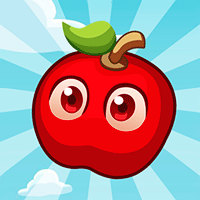

#Fruit swipe game online professional
Only avoid eating peanuts if you're advised to by a healthcare professional or if you have a nut allergy. You do not need to avoid eating peanuts when you're pregnant. Make sure to thoroughly wash all fruits, vegetables and salad ingredients. Fruits, vegetables and saladsīe careful with fruits, vegetables and salads as they can have soil on them, which can make you unwell. You should drink no more than 4 cups of herbal tea a day. This keeps risks to your baby to a minimum. If you're pregnant or planning to get pregnant, the safest approach is to not drink alcohol at all. less than 10mg in a 50g bar of plain milk chocolateĭrinking alcohol in pregnancy can lead to long-term harm to your baby.less than 25mg in a 50g bar of plain dark chocolate.75mg in a mug of tea (green tea can have the same amount of caffeine as regular tea).You can have caffeine, but no more than 200mg per day. You should cook all eggs thoroughly, unless they are British Lion hen eggs or hen eggs produced under the Laid in Britain scheme. Salmonella is unlikely to harm your unborn baby, but you could get food poisoning. raw or partially cooked duck, goose or quail eggsīritish Lion hen eggs and hen eggs produced under the Laid in Britain scheme are less likely to have salmonella in them.raw or partially cooked hen eggs that are not British Lion or produced under the Laid in Britain scheme.


pasteurised milk, yoghurt, cream and ice cream.soft or blue cheese (pasteurised or unpasteurised) that has been cooked until steaming hot.pasteurised soft cheeses, such as cottage cheese, mozzarella, feta, cream cheese, paneer, ricotta, halloumi, goats' cheese without a white coating on the outside (rind) and processed cheese spreads.pasteurised semi-hard cheeses, such as Edam and Stilton.pasteurised or unpasteurised hard cheeses, such as cheddar, Gruyere and parmesan.


 0 kommentar(er)
0 kommentar(er)
